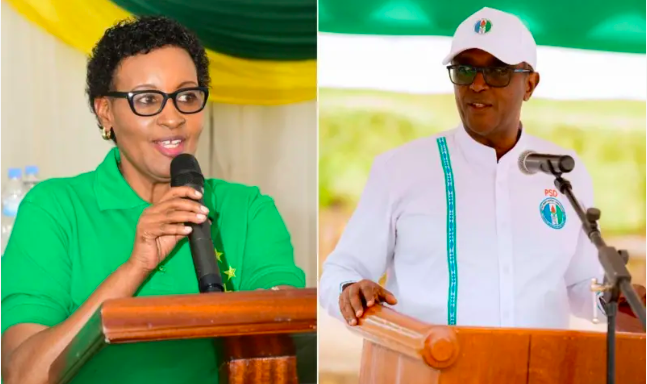On Sunday, Rwanda’s political scene witnessed a significant development as two of the country’s long-standing political parties, the Liberal Party (PL) and the Social Democratic Party (PSD), announced their decision to support the incumbent president, Paul Kagame of the Rwandan Patriotic Front (FPR-Inkotanyi), in the upcoming presidential elections scheduled for July 2023. This move underscores a unique aspect of Rwanda’s political dynamics, reflecting both the historical trajectory of these parties and the contemporary political landscape.
The PL and PSD have been part of Rwanda’s political framework for over three decades, with their last presidential candidates presented in the 2010 elections. Since then, the political influence of these parties, like that of others within the country, has seemingly diminished, overshadowed by the dominant presence of the FPR-Inkotanyi, which has been at the helm of Rwandan politics since 1994. In separate general assemblies held in Kigali, both parties officially declared their endorsement for Kagame, a decision that was not entirely unexpected given the current political climate.
In the 2010 presidential elections, PSD’s candidate, Jean-Damascène Ntawukuriryayo, secured 5% of the vote, while PL’s Prosper Higiro received a mere 1%. In their recent announcements, the PL justified their support for Kagame by highlighting his pivotal role in stopping the genocide and liberating Rwanda, while PSD, under the leadership of Vincent Biruta, Rwanda’s Minister of Foreign Affairs, praised Kagame as an exemplary leader beloved by the Rwandan people.
This consolidation of support for Kagame from PL and PSD occurs in a broader context where, for nearly three decades, Rwanda’s political arena has been predominantly influenced and defined by the FPR-Inkotanyi. The party’s lion emblem symbolizes its strength and appeal, particularly among the youth, who are drawn to its promise of employment, political representation, and other opportunities.
Critics and opposition groups have often accused the political parties within Rwanda of operating under the influence or in the shadow of the FPR-Inkotanyi, suggesting a monopolized political space. In contrast, supporters of the FPR-Inkotanyi argue that the party, led by Kagame, has brought stability, development, and dignity back to Rwanda.
The decision by PL and PSD to endorse Kagame ahead of the July elections raises questions about the state of multiparty politics in Rwanda and the future of political competition. Bernard Ntaganda, a notable opposition figure and founder of the PS-Imberakuri party, which has split into two factions, has voiced concerns over the suppression of political diversity and intolerance towards dissenting views. On the other hand, Kagame and his supporters emphasize the achievements under his leadership, including security, development, and national pride, as the country approaches an election that many believe will reaffirm Kagame’s leadership.






























































